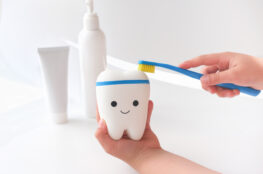As a dentist with over 30 years of experience, I’ve witnessed the profound impact regular dental hygiene visits have on oral health. At Kennett Road Dental Practice in Headington, Oxford, we often hear the question, “How often should I see a dental hygienist?”
While the answer varies depending on individual circumstances, this comprehensive guide will explore the factors influencing the frequency of your hygienist visits.
Regular dental hygiene appointments are vital for maintaining excellent oral health and preventing serious dental issues. These visits enable professional cleaning, early detection of potential problems, and personalised advice on your oral care routine.
The General Rule: Every Six Months
For most patients, the standard recommendation is to visit a dental hygienist every six months. This bi-annual schedule allows for regular professional cleaning and monitoring of your oral health.
However, it’s crucial to understand that this is a general guideline, not a one-size-fits-all rule. Your dentist or hygienist may recommend a different schedule based on your individual needs.
Some patients with excellent oral health might only need annual visits, while others may require more frequent appointments.
Factors Affecting Visit Frequency
Oral Health Status
Your current oral health status is a key determinant in how often you should see a hygienist. Patients with a history of good dental health and no genetic predisposition to dental diseases may only need hygienist cleanings every 6 to 12 months.
Conversely, if you have a history of dental issues or are prone to plaque build-up, more frequent visits may be necessary. Your dentist will assess your oral health and recommend an appropriate schedule, which may range from 3 months to 2 years between visits.
Risk Factors and Medical Conditions
Certain medical conditions can significantly impact your oral health and necessitate more frequent hygienist visits.
Patients with diabetes, cardiovascular diseases, or osteoporosis often require more regular dental care. These conditions can complicate dental procedures and increase the risk of oral health issues such as gum disease.
Additionally, medications used to treat these conditions may affect your oral health, making more frequent monitoring necessary.
Lifestyle Habits
Your lifestyle choices can substantially influence your oral health and the required frequency of hygienist visits. Smokers, for instance, are at higher risk for gum disease and may need to see a hygienist every three to four months.
A diet high in sugary or acidic foods can increase your risk of tooth decay, potentially necessitating more frequent professional cleanings. Even your choice of toothpaste can play a role – those using fluoride-free toothpaste may need more frequent hygienist visits.
Dental Appliances
If you wear dental appliances such as braces, and dentures, or have extensive dental work like crowns, bridges or especially implants, you may need to visit the hygienist more frequently. These appliances can make it more challenging to clean your teeth effectively at home and may require special cleaning techniques.
In such cases, hygienist visits every 3-4 months are often recommended to ensure proper cleaning and maintenance of your dental work.
Dental Hygiene Visits for Children
When it comes to children’s oral health, dental hygiene visits will be advised by the dentist depending on the child’s oral health. Dental hygiene visits for children are beneficial because their oral health can change rapidly as they grow.
Additionally, children are often more prone to tooth decay due to diet and sometimes less-than-perfect brushing habits.
Moreover, early and frequent dental visits help children become comfortable with dental procedures, potentially reducing anxiety in later years.
During these appointments, we can also educate both children and parents about proper oral hygiene techniques and the importance of a tooth-friendly diet. Remember, establishing good dental habits in childhood sets the foundation for a lifetime of excellent oral health.
When More Frequent Visits Are Necessary
Gum Disease
If you’ve been diagnosed with gum disease or are at high risk for developing it, more frequent hygienist visits are crucial.
In these cases, appointments every three months are often recommended to closely monitor the disease’s progression. These regular visits allow for more opportunities to perform deep cleaning treatments like root surface debridement.
Such treatments are essential in managing gum disease and preventing its advancement to more severe stages. Your hygienist can also adjust your home care routine as needed to help combat the disease effectively.
Pregnancy
Pregnant women often experience changes in their oral health due to hormonal fluctuations. These changes can lead to a condition called “pregnancy gingivitis”, characterised by swollen, red, and tender gums that may bleed during brushing or flossing.
To manage these changes and maintain optimal oral health, we typically recommend that pregnant women visit the hygienist more frequently, usually at 3-month intervals.
These additional visits allow us to monitor your oral health closely, provide necessary treatments, and adjust your oral care routine to accommodate the changes throughout your pregnancy.
Dental Work (Fillings, Crowns, Implants)
If you have had extensive dental work such as fillings, crowns, implants, or bridges, you may need to see a hygienist more frequently. These dental restorations require special care and cleaning to maintain their integrity and prevent complications.
In most cases, we recommend hygienist appointments every 2 to 4 months for patients with significant dental work. During these visits, your hygienist can thoroughly clean around your restorations, check for any signs of wear or damage, and ensure they’re functioning correctly.
What Happens During a Dental Hygiene Appointment?
A typical dental hygiene appointment comprises several key components, each crucial for maintaining your oral health.
Your hygienist will begin with a thorough examination of your mouth, checking for signs of dental health problems such as bleeding, swelling, or inflammation. This examination includes an assessment of your gums for any indications of periodontal disease, which is crucial for early detection and treatment.
Importantly, your hygienist will also perform an oral cancer screening, checking for any suspicious lesions or abnormalities in your mouth, throat, and neck area.
Next, your hygienist will perform a thorough professional cleaning. Professional cleaning involves removing plaque and tartar build-up, particularly in hard-to-reach areas that regular brushing and flossing might miss.
The hygienist will then polish your teeth to remove surface stains, leaving your smile brighter and fresher.
Throughout the appointment, your hygienist will evaluate your brushing and flossing technique, identifying areas you might be missing in your daily routine.
You’ll receive personalised, tailored advice on improving your oral hygiene habits, including recommendations for appropriate dental care products.
If necessary, your hygienist may apply fluoride treatments or dental sealants to protect your teeth from decay.
Some dental hygienists are also trained to perform cosmetic treatments such as tooth whitening, which can be discussed during your visit if you’re interested in enhancing your smile.
The appointment also serves as an opportunity to discuss any concerns you may have about your oral health and receive expert advice.
Benefits of Regular Hygienist Visits
Regular visits to your dental hygienist offer numerous benefits that extend far beyond just clean teeth.
Professional cleaning not only enhances the appearance and feel of your teeth but also contributes significantly to your overall health.
These appointments play a crucial role in preventing gum disease, which has been linked to various systemic health issues, including heart disease and diabetes.
Early detection of dental problems during hygienist visits can save you time, discomfort, and money in the long run.
Your hygienist can spot the early signs of issues like cavities, gum disease, or oral cancer before they become more serious and difficult to treat.
For instance, during a routine cleaning, a hygienist might notice the early stages of tooth decay that aren’t yet visible on X-rays, allowing for preventive treatment.
Regular hygienist visits also provide an opportunity for ongoing dental education.
You’ll receive updates on the latest oral care techniques and products, helping you maintain optimal oral health between appointments.
Many patients find that the fresh, clean feeling after a hygienist visit serves as motivation to maintain good oral hygiene habits at home.
Maintaining Oral Health Between Appointments
While regular hygienist visits are essential, maintaining good oral health between appointments is equally crucial.
Brush your teeth at least twice a day using fluoride toothpaste and a soft-bristled toothbrush.
Pay attention to your brushing technique – use gentle, circular motions and spend at least two minutes each time you brush.
Flossing daily is vital for removing plaque and food particles from between your teeth where your toothbrush can’t reach.
If you find traditional flossing challenging, consider using interdental brushes or water flossers as alternatives.
Your diet plays a significant role in your oral health.
Limit sugary and acidic foods and drinks, as these can contribute to tooth decay and erosion.
Instead, opt for a balanced diet rich in fruits, vegetables, and calcium-rich foods to support your dental health.
Drinking plenty of water throughout the day helps rinse away food particles and keeps your mouth hydrated, reducing the risk of dry mouth and associated dental issues.
Consider chewing sugar-free gum after meals to stimulate saliva production, which helps neutralise acids in your mouth.
If you’re a smoker, quitting can significantly improve your oral health and reduce the need for frequent hygienist visits.
Overcoming Dental Anxiety
Dental anxiety is a common issue that can prevent patients from seeking regular dental care, including hygienist visits.
At Kennett Road Dental Practice, we understand these concerns and strive to create a comfortable, relaxing environment for all our patients.
If you experience dental anxiety, it’s crucial to communicate your concerns to your dentist or hygienist.
We can work together to develop strategies to help you feel more at ease during your appointments.
Techniques such as deep breathing exercises, listening to music, or using stress balls can help manage anxiety during dental visits.
Remember, regular hygienist visits can actually help reduce dental anxiety over time by preventing more serious dental issues that might require extensive treatment.
Moreover, becoming familiar with the dental team and environment can significantly alleviate anxiety for many patients.
Personalised Care at Kennett Road Dental Practice
The frequency of your dental hygienist visits should be tailored to your individual needs and oral health status.
While the general recommendation is every six months, some patients may need more frequent visits, while others might require less.
At Kennett Road Dental Practice in Headington, Oxford, we’re committed to providing personalised dental care to each of our patients.
Our experienced team will assess your oral health, consider your lifestyle factors, and recommend an appropriate schedule for your hygienist visits.
Regular appointments with your dental hygienist are an investment in your long-term oral health and overall well-being.
By maintaining a consistent hygiene visit schedule and following good oral care practices at home, you can enjoy a healthy, beautiful smile for years to come.
If you’re unsure about how often you should see a hygienist or if you’re due for an appointment, don’t hesitate to contact our friendly team at Kennett Road Dental Practice.
We’re here to answer your questions and help you achieve optimal oral health, tailored to your unique needs and circumstances.





